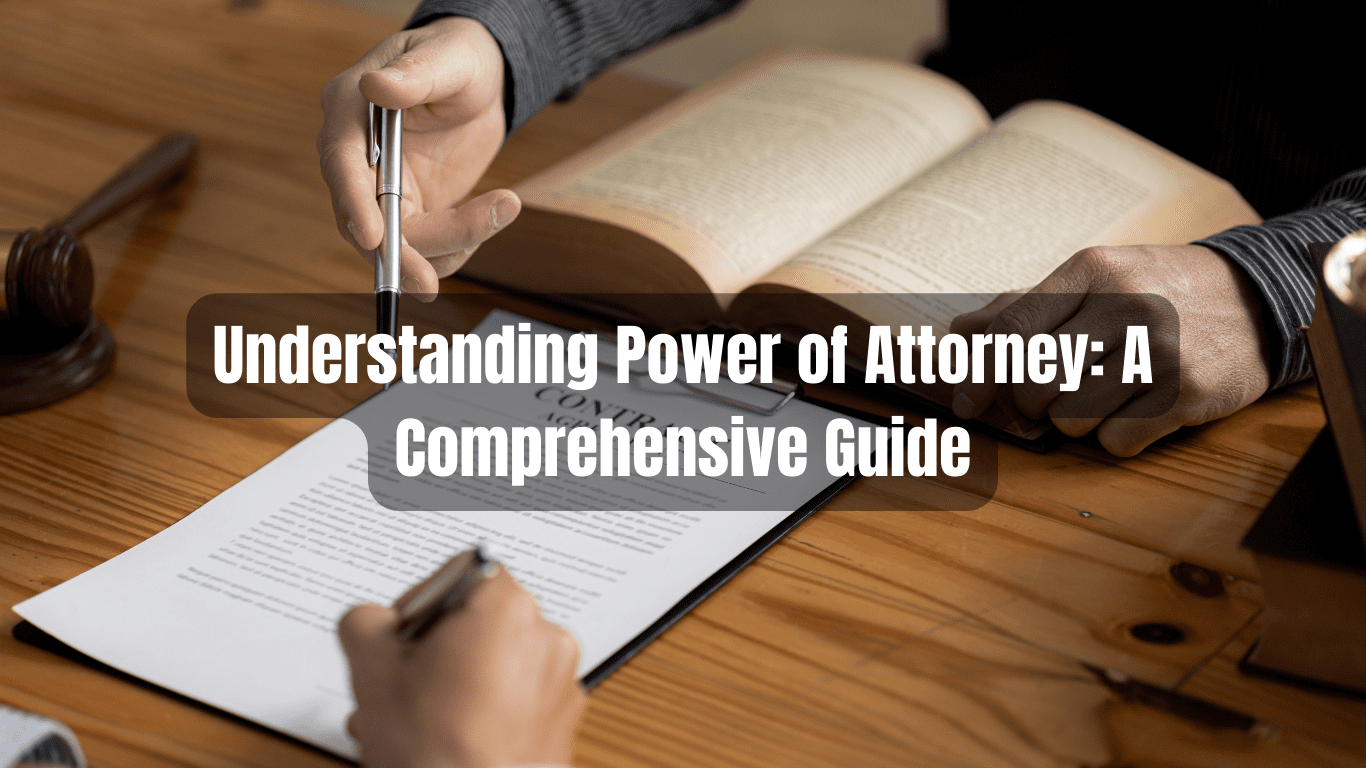Property fraud is a serious concern for buyers and sellers. Fraudulent activities can include selling property without the owner's knowledge, forging documents, or misrepresenting property details.

Understanding Property Title Verification
Property title verification is the process of confirming the legal ownership of a property and ensuring there are no disputes or encumbrances. This involves reviewing various legal documents and records to validate the seller's right to sell the property and to confirm that the property is free from legal issues.
Importance of Property Title Verification
Preventing Fraud: Property fraud is a serious concern for buyers and sellers. Fraudulent activities can include selling property without the owner's knowledge, forging documents, or misrepresenting property details. By conducting thorough title verification, you ensure that the person selling the property is the legitimate owner and that all documents are genuine.
Avoiding Legal Disputes: Legal disputes over property ownership can be lengthy, costly, and stressful. Title verification helps avoid such disputes by ensuring that the property's ownership history is clear and unambiguous. This means following a paper trail to see who owned the property in the past and ensuring each transfer was legal and documented correctly.
Securing Financing: Financial institutions, such as banks and mortgage lenders, require a clear and verified property title before approving a loan. This is because the property serves as collateral for the loan, and lenders need to be certain that their investment is secure. Title verification assures the lender that the property has a clear legal status and is free from any disputes or claims.
Peace of Mind: Knowing that your property is legally sound provides peace of mind. It assures you that your investment is secure and that you won't face unexpected legal issues in the future. This confidence allows you to focus on other aspects of property ownership, such as moving in, renovating, or renting out the property.
Steps in Property Title Verification
Review the Title Deed
The title deed reigns supreme as the most crucial document in any property transaction. It serves as the proof of ownership and outlines the legal rights of the owner. When reviewing the title deed, ensure it is in the seller's name and check for any inconsistencies or errors. document's authenticity by cross-referencing it with the records at the local sub-registrar's office. A clean title deed proves the seller owns the property outright and can legally sell it.
Check Encumbrance Certificates
An encumbrance certificate (EC) reveals any legal liabilities, such as mortgages, loans, or legal disputes, attached to the property. It is a crucial document that ensures the property is free from any financial or legal encumbrances. The EC can be obtained from the sub-registrar's office, typically covering a period of 13-30 years. Ensuring that the EC is clear provides confidence that there are no hidden claims that could affect your ownership rights.
Verify Land Use and Zoning
Zoning laws and land use regulations dictate how a property can be used within a specific area. Verifying that the property complies with local zoning laws and land use regulations is essential to avoid legal complications. Check with local municipal authorities to ensure the property is designated for the intended use, whether residential, commercial, or industrial. Compliance with zoning laws ensures that the property can be used as intended without facing penalties or restrictions.
Inspect Previous Sale Deeds
Inspecting previous sale deeds helps trace the ownership history of the property. This step ensures that all past transfers of ownership were legal and properly documented. Reviewing the chain of ownership helps identify any gaps or inconsistencies that could lead to disputes. It also confirms that the property has not changed hands illegally or been subject to fraudulent transactions.
Obtain a No Objection Certificate (NOC)
A No Objection Certificate (NOC) from the relevant authorities is essential to ensure that there are no pending objections or legal issues related to the property. The NOC confirms that the property complies with local regulations and that there are no legal impediments to the sale. Different types of NOCs may be required, depending on the property type and location, including those from the local municipal corporation, electricity board, and water authority.
Survey the Property
A physical survey of the property verifies its boundaries and identifies any encroachments or discrepancies with the recorded dimensions. Engaging a licensed surveyor to conduct the survey ensures accuracy and helps resolve boundary issues before finalizing the purchase. A property survey maps a property's exact dimensions and verifies they align with the legal description on the title.
Check for Property Taxes
Ensuring that all property taxes are paid up to date is crucial to avoid future liabilities. Unpaid property taxes can become the new owner's responsibility and lead to legal issues. Obtain the latest property tax receipts from the seller and verify them with the local municipal authority. This step confirms that there are no outstanding dues and that the property is not subject to any tax-related disputes.
Consult a Legal Expert
Consulting a property lawyer is highly recommended to thoroughly examine all legal documents and verify the property's legal status. A legal expert can help identify potential issues, ensure compliance with local laws, and provide guidance throughout the verification process. Their expertise helps in navigating complex legalities and ensures a smooth and secure property transaction.
Common Issues in Property Title Verification
Discrepancies in Ownership
One of the most significant issues during property title verification is discrepancies in ownership records. These discrepancies can arise from various factors, such as clerical errors, fraudulent documentation, or incomplete record-keeping. When ownership records are inconsistent or unclear, it can lead to disputes over who holds the legitimate claim to the property. To avoid this, it is crucial to thoroughly check the chain of ownership by reviewing previous sale deeds and other relevant documents.
Unpaid Dues or Encumbrances
Unpaid dues or encumbrances, such as outstanding loans, mortgages, or property taxes, can significantly impact the legal status of a property. These financial liabilities are often attached to the property rather than the owner, meaning they can transfer to the new owner upon purchase. An encumbrance certificate is a vital document that reveals any existing liabilities on the property. Checking this certificate ensures that there are no hidden debts or claims that could affect your ownership rights.
Zoning Violations
Zoning laws and land use regulations dictate how properties can be used within certain areas. Zoning violations occur when a property is used in a manner that is not permitted by local regulations. This can include unauthorized construction, improper land use, or building in restricted zones. Such violations can result in penalties, fines, or even demolition orders. During title verification, it is important to check with local municipal authorities to ensure the property complies with all zoning laws.
Litigation
Ongoing litigation involving the property can pose a significant risk to potential buyers. Legal disputes over property ownership, boundary issues, or inheritance claims can delay or invalidate property transactions. To identify any ongoing litigation, it is essential to conduct a thorough search of court records and consult with legal experts. Ensuring that the property is free from any legal disputes provides security and peace of mind, protecting your investment from future legal battles.
Case Studies
Land Dispute in Mumbai:
In a bustling city like Mumbai, real estate transactions are frequent and often complex. A buyer, Mr. Sharma, sought to invest in a promising property located in a prime area of Mumbai. The property was advertised as having a clean title and free from any legal disputes, making it an attractive investment opportunity.
Mr. Sharma proceeded with the purchase, relying on the documents provided by the seller. The sale deed was executed, and he took possession of the property. However, Mr. Sharma did not conduct a thorough title verification or consult with a property lawyer before finalizing the deal.
Shortly after the purchase, Mr. Sharma was notified of an existing ownership dispute over the property. Another party, Ms. Desai, claimed ownership based on an inheritance claim that was not disclosed during the transaction. Ms. Desai had filed a lawsuit challenging the legitimacy of the title deed held by Mr. Sharma’s seller.
The unresolved ownership dispute led to a prolonged legal battle. Mr. Sharma had to engage in expensive and time-consuming litigation to defend his ownership rights. The case dragged on for several years, during which time Mr. Sharma faced significant financial and emotional stress. The uncertainty over the property's legal status also affected his plans to develop or sell the property.
Proper title verification is essential in real estate transactions to avoid legal disputes and secure your investment.
Recent Developments in Property Verification
Recent legal rulings and government policies have emphasized the importance of thorough property verification. For instance, the Supreme Court of India ruled that property sales through general power of attorney (GPA) do not confer ownership, highlighting the need for registered sale deeds. Additionally, the Municipal Corporation of Delhi (MCD) has revised property tax structures, impacting how properties are verified and taxed.
Conclusion
Property title verification is a critical step in securing your real estate investment. By following the outlined steps and understanding common issues, you can safeguard your investment and ensure a smooth transaction. Consulting with legal experts and staying informed about recent developments can further protect your interests.
FAQs
What document do you need to examine first to get started with property title verification?
The first step is reviewing the title deed to ensure it is in the seller's name and free from discrepancies.
Why is an encumbrance certificate important?
It reveals any legal liabilities, such as mortgages or loans, that could affect the property.
What should I do if there are discrepancies in ownership records?
Consult a property lawyer to investigate and resolve any inconsistencies before proceeding with the purchase.
How can I verify land use and zoning compliance?
Check with local municipal authorities to ensure the property adheres to zoning laws and land use regulations.
What role does a property survey play in verification?
A physical survey confirms property boundaries and identifies any encroachments or disputes.
Are there recent legal changes affecting property verification?
Yes, recent Supreme Court rulings and revised municipal tax structures emphasize the importance of thorough verification and registered sale deeds.


































.png)
-min.png)
-min.png)
-min.png)
-min.png)







.png)









